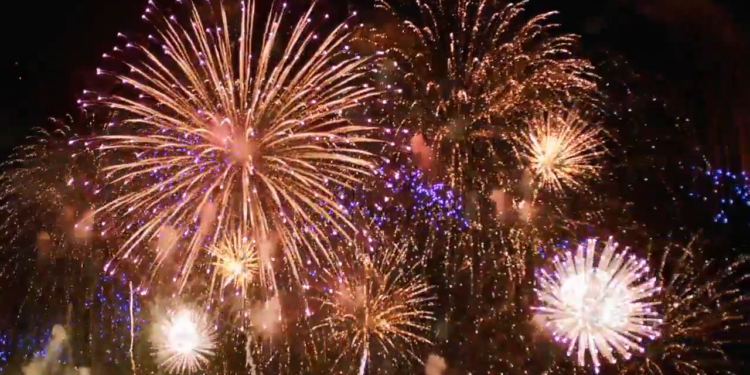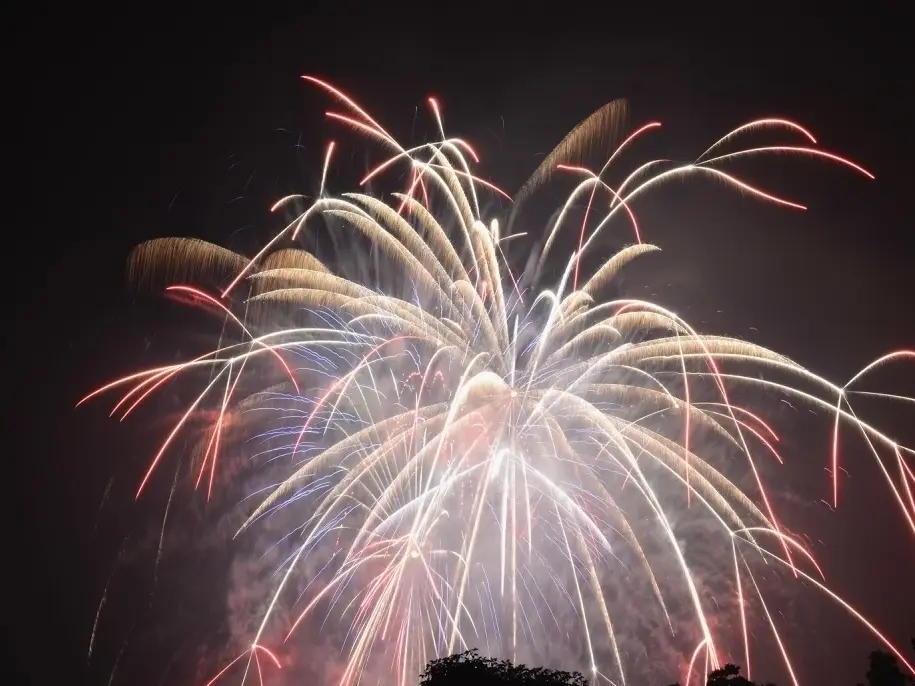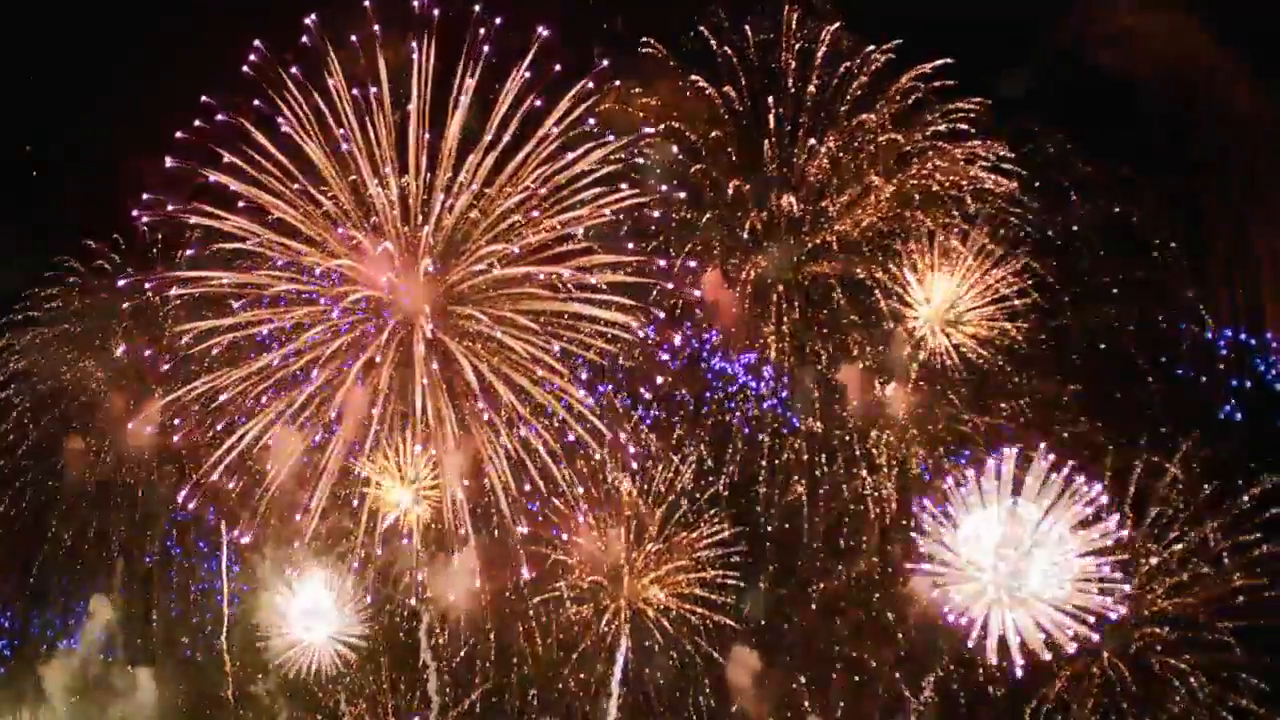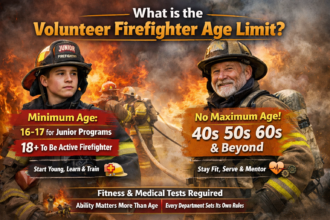Virginia Fireworks Laws

Virginia’s fireworks laws rank among the nation’s strictest, and with good reason too. Fireworks cause countless injuries or worse to Virginians each year. U.S. hospital emergency departments treated an estimated 10,000 fireworks-related injuries in 2019. Children under 15 made up 36 percent of these injuries.
Legal fireworks in Virginia can be tricky to identify. The state bans all fireworks that explode, rise into the air, or move sideways. Anyone caught possessing, selling, or using illegal fireworks faces a class 1 misdemeanor charge. This offense carries penalties up to $2,500 in fines or a year in jail. The 2025 Virginia Permissible Fireworks List specifies legal items that meet the American Fireworks Standards Laboratory’s performance criteria through field testing.
This piece explains Virginia’s 2025 fireworks laws. You’ll find details about legal purchases, prohibited items, and local restrictions that might limit your choices. Virginia law requires buyers to be at least 18 years old. Counties like Fairfax allow sales between June 1 and July 15.

Table of Contents
- 1 What fireworks are legal in Virginia in 2025
- 2 What fireworks are illegal in Virginia
- 3 How local laws affect what you can use
- 4 Penalties for breaking Virginia fireworks laws
- 5 Firework safety tips and injury statistics
- 6 Summing all up
- 7 Here are some FAQs about the Virginia fireworks laws:
- 7.1 Why are fireworks illegal in Virginia Beach?
- 7.2 Are Roman candle fireworks illegal in Virginia?
- 7.3 Can you buy mortar fireworks in VA?
- 7.4 Can fireworks be shipped to Virginia?
- 7.5 Can you make a bonfire on Virginia Beach?
- 7.6 Do they do fireworks at Virginia Beach?
- 7.7 What happens if you get caught with illegal fireworks in Virginia?
What fireworks are legal in Virginia in 2025
Virginia takes a careful approach to consumer fireworks. People across the country can use aerial displays at home, but Virginia has strict rules about what residents can legally buy and use. The state law only allows ground-based fireworks that stay put – no explosions, no flying up in the air, no moving sideways, and no shooting projectiles.
Sparklers and fountains
Sparklers are one of the most accessible legal fireworks in Virginia. These hand-held sticks create beautiful spark showers and come in different sizes. The 2025 Virginia Permissible Fireworks List has many more sparkler options like Gold Sparklers, Morning Glory, Celebration Sparklers, and Neon Sparklers.
Fountains are another popular choice throughout Virginia. These stationary fireworks stay on the ground and shoot colorful sparks upward. In spite of that, fountain fireworks must meet specific safety rules – the sparks or burning effects can’t spread beyond five meters (16.4 feet). The approved list has several fountain options such as Amazing Fountain, Desert Fever, and California Rocket Fountain.
You need private property owner’s permission to use sparklers and fountains. The state requires buyers to be at least 18 years old.
Pharaoh’s serpents and pinwheels
The sort of thing I love about Pharaoh’s serpents is how they create ash “snakes” once lit. Virginia state code specifically lists these novelty items as allowed fireworks. The 2025 approved list features varieties like Black Snakes and Assorted Color Snakes.
Pinwheels make up another legal category of ground-based fireworks. These devices create circular spark displays by spinning around a central pin. The state code lists pinwheels as permitted fireworks. Items like Spinning Jennies also fit into this approved ground-based category.
The state law groups these items with sparklers and fountains as “consumer fireworks” that stay on the ground. They’re legal across Virginia unless local rules say otherwise.
Whirligigs and ground-based spinners
Whirligigs, which regulations often call spinning jennies, create spinning effects without leaving the ground. Virginia law allows these devices. The 2025 approved list features spinner products like Ground Spinner, Cracklin Lazer Flash, and Phantom Tank with Spark.
Ground-based spinners like wheels and whirligigs must keep their flame radius under one meter (39 inches). Products in this group include Ladybug Ground Spinner and other ground items that create spinning visual effects without launching.
The state defines legal fireworks as “any sparklers, fountains, Pharaoh’s serpents, caps for pistols, or pinwheels commonly known as whirligigs or spinning jennies”. These items must meet American Fireworks Standards Laboratory requirements and appear on the state’s approved list.
Local rules can be stricter than state law. All but one of these fireworks face bans in some counties, including Chesterfield and Henrico. Federal land bans all types of fireworks.
Virginians should check their local rules before buying or using fireworks since local restrictions might be tougher than state law.
What fireworks are illegal in Virginia
Virginia has strict rules about consumer fireworks. The state bans many popular varieties that you might see in neighboring states. The Virginia Department of Fire Programs-State Fire Marshal’s Office makes it clear: “any firework that explodes, moves on the ground or in the air, or shoots a projectile is illegal in the Commonwealth of Virginia”.
Firecrackers and bottle rockets
Firecrackers used to be a classic part of Independence Day celebrations across America. Now they’re completely banned in Virginia. The state law specifically lists these small explosive noisemakers as illegal. So anyone caught possessing, using, or selling firecrackers in Virginia faces serious legal trouble.
The Commonwealth also bans bottle rockets – those small fireworks on sticks that shoot into the air when lit. These items pose special risks because no one can predict where they’ll fly. Even if you buy them legally in another state, you can’t bring them into Virginia or use them here.
People from states with looser fireworks laws often can’t believe how strict Virginia’s rules are. Notwithstanding that, these restrictions exist to keep people safe and prevent common injuries from these devices.
Skyrockets and torpedoes
Skyrockets break Virginia’s rule against fireworks that “rise into the air”. These devices soar high before exploding with visual or sound effects. The state code clearly labels them as illegal.
The law also bans torpedoes – ground explosives that make loud noises when hit or thrown. These devices violate Virginia’s ban on explosions.
Licensed professionals with proper permits from local fire marshals can use skyrockets and torpedoes as “display fireworks”. Anyone else caught with these items faces major penalties.
Any firework that explodes or launches
Virginia’s law goes beyond specific items to ban whole categories of fireworks. A device is illegal if it:
- Explodes or makes a loud bang
- Goes up in the air
- Moves across the ground
- Acts like a projectile
This broad approach bans roman candles, cherry bombs, aerial shells and many other fireworks that other states allow. On top of that, it bans any firework with a continuous flame longer than 20 inches.
Breaking Virginia’s fireworks laws comes with heavy penalties. Each illegal item counts as a Class 1 misdemeanor. Violators could spend up to 12 months in jail and pay up to $2,500. Fire marshals or police officers can also take away illegal fireworks.
Local areas often have even tougher rules. To cite an instance, see Alexandria’s ban on all fireworks, including sparklers – with maximum state penalties for violations. Suffolk, Portsmouth, and Hampton have also banned all firework possession and use.
Virginia’s tough stance on fireworks comes from safety concerns. Officials point to the thousands of people nationwide who end up in emergency rooms each year because of firework injuries.
How local laws affect what you can use
Local governments in Virginia can make fireworks rules that are stricter than state law. The Code of Virginia §27.97 lets jurisdictions create fire prevention rules that go beyond the Statewide Fire Prevention Code. This creates a mix of rules that change by a lot from one community to another.
Counties with total bans
Many counties in Virginia don’t allow consumer fireworks at all. James City County has some of the toughest rules—you can’t possess, make, store, sell, handle or use fireworks. Breaking this law is a Class 1 misdemeanor that could land you in jail for up to 12 months with a $2,500 fine.
Henrico and Chesterfield Counties also don’t let anyone use fireworks. Next door in Maryland, Montgomery and Prince George’s counties have banned personal fireworks completely. Only licensed pros with permits can put on displays there.
Most places that allow fireworks still keep tight control over them. Prince William and Loudoun counties let you use approved fireworks but don’t want them moving sideways. People living there need to make sure their fireworks match the “permissible” list exactly or they’ll face penalties.
Cities with permit-only rules
Many Virginia cities only allow fireworks with permits. Alexandria has banned all consumer fireworks, even sparklers. You’ll only see professional shows with proper permits there. Falls Church doesn’t let anyone use or sell fireworks.
Cities that allow firework shows usually need you to get a permit from one of these places:
- The local fire official who enforces the Statewide Fire Prevention Code
- The local government through its legal authority
- The State Fire Marshal’s Office (for shows on state property)
Professional displays always need proper permits, even in areas that allow some consumer fireworks. Virginia law lets local governments give permits to fair associations, amusement parks, or any group that follows the Virginia Statewide Fire Prevention Code.
Examples: Virginia Beach, Fairfax, Arlington
Virginia Beach has some of the toughest rules in the state. The city bans all fireworks—sparklers included. City code section 12-43.2 makes it illegal to move, make, store, sell, buy, use, have, light or set off any fireworks. Break this law and you’ll face a Class 1 misdemeanor, plus the police can take your fireworks.
Fairfax County’s rules work a bit differently. You can’t have fireworks that blow up, shoot flames or sparks higher than 12 feet, or shoot through the air. These rules apply to Clifton, Herndon, and Vienna too. Stores can only sell fireworks from June 1 to July 15 each year.
Arlington County lets you use approved fireworks on private property. Nothing that leaves the ground or goes into the air is allowed, except for fountains. Arlington also makes it clear that stores can’t sell fireworks to kids, and adults must watch when kids use them.
Before you buy or use any fireworks in Virginia, check with your local government about specific rules. The penalties can hit hard, and not knowing the local laws won’t protect you.

Penalties for breaking Virginia fireworks laws
Breaking Virginia’s fireworks laws will cost you more than just a ruined celebration. The legal system takes these violations seriously and imposes heavy penalties.
Fines and misdemeanors
The law classifies possession, distribution, use, or sale of illegal fireworks in Virginia as a Class 1 misdemeanor. This represents the harshest misdemeanor category in the Commonwealth’s legal system. Violators must pay fines up to $2,500 per violation. Each illegal firework counts as a separate violation, which means penalties can multiply quickly with multiple items.
You’ll face extra charges in specific situations. People without proper permits or those who aren’t licensed Virginia State pyrotechnicians receive additional charges. These extra violations lead to higher financial penalties.
Jail time for serious violations
The penalties go beyond just money. Courts can put offenders in jail for up to 12 months. Judges decide whether to impose the maximum sentence, a fine, or both punishments at once.
People whose fireworks start wildfires face harsher consequences. They must pay for suppression and reclamation costs on top of standard penalties. This means thousands more in expenses plus possible criminal charges.
Confiscation of illegal fireworks
Police officers must take all fireworks from anyone arrested for these violations. The confiscated items stay in custody until criminal proceedings end. After conviction, courts order all seized fireworks destroyed.
These seizures can be significant. Law enforcement once took over $600,000 worth of illegal fireworks after getting an anonymous tip. Some areas like James City County let residents hand over illegal fireworks at any county fire station without penalties. This gives people a safe way to avoid illegal possession.
The strict enforcement shows Virginia’s steadfast dedication to keeping people safe when it comes to fireworks.
Firework safety tips and injury statistics
Fireworks send thousands of Americans to emergency rooms each year. Most accidents happen during the month around Independence Day. These sobering statistics explain why Virginia maintains such strict fireworks laws.
Common injuries and age groups affected
Hospital emergency departments treated an estimated 9,700 fireworks-related injuries in 2023. Children under 15 and adults between 25-44 each made up 31% of these cases. The injuries mainly affected hands and fingers (35%), followed by head, face, and ears (22%), and eyes (19%). Burns made up 42% of all emergency department-treated fireworks injuries.
How to use fireworks safely
Safety should be your top priority when using legal fireworks in Virginia. Here’s what you need to do:
- Buy legal fireworks only from approved vendors
- Keep children away from handling or lighting fireworks
- Wear safety goggles for eye protection
- Set off fireworks outdoors far from buildings and flammable materials
- Light one firework at a time and step back quickly
- Have a water bucket ready for emergencies
Why sparklers are more dangerous than you think
Sparklers reach temperatures between 1,200-2,000 degrees Fahrenheit – hot enough to melt certain metals. These seemingly innocent devices cause 36% of all fireworks-related emergency room visits. Children under 5 account for 29% of these sparkler injuries.
Tips for pet safety during fireworks
Pet-related emergencies peak on July Fourth. Your pets need protection:
- Create a quiet, comfortable indoor space for them
- Update their ID tags and microchip information
- Talk to your vet about anti-anxiety medications
- Drown out firework noise with calming music
What to do in case of an accident
Minor burns need cool water (not ice) treatment for about 20 minutes. Clean the wound and cover it with a non-adhesive bandage. Serious injuries like large burns or eye trauma require immediate medical attention – call 911 right away.
Professional firework displays remain the safest way to enjoy this holiday tradition.
Summing all up
Virginia’s fireworks laws protect residents from harm. You need to know these rules if you plan to celebrate with pyrotechnics. Without doubt, the state has some of the toughest fireworks laws in the country. Only ground-based items that don’t explode or shoot into the air are allowed.
These rules might seem strict to many people, but the safety numbers tell the real story. Thousands of Americans get hurt by fireworks each year. Children make up much of those injured. Legal options like sparklers might look harmless, but they can burn hot enough to melt metal and cause bad burns.
The digital world of Virginia’s fireworks gets more complex with local rules. You must check both state and local laws before buying or using any fireworks. All but one of these counties and cities have total bans. Others let you use specific items from the state’s approved list.
Of course, breaking these laws comes with serious consequences. People caught with illegal fireworks can face Class 1 misdemeanor charges. They might pay fines up to $2,500 per item or go to jail. The police will also take away all illegal items.
Professional displays are the safest way to enjoy fireworks. If you want to use legal fireworks at home, you must follow proper safety steps. Watch your children, keep water close by, protect your eyes, and light one item at a time.
These laws protect our communities without ruining the fun. Holiday joy should never put safety at risk. Whatever fireworks you choose from the allowed list, celebrating safely matters most.
Here are some FAQs about the Virginia fireworks laws:
Why are fireworks illegal in Virginia Beach?
Virginia Beach follows strict virginia fireworks laws that prohibit most consumer fireworks due to fire risks and safety concerns. The city’s coastal location and dense population make the fireworks laws in virginia particularly restrictive in this area. Only sparklers and similar non-explosive items are permitted under current virginia fireworks laws 2024.
Are Roman candle fireworks illegal in Virginia?
Yes, Roman candles are prohibited under virginia fireworks laws as they are classified as explosive fireworks. The fireworks laws in virginia only allow sparklers, fountains, and similar non-aerial, non-explosive items. This restriction has been consistent through both virginia fireworks laws 2023 and the updated 2024 regulations.
Can you buy mortar fireworks in VA?
Mortar fireworks cannot be legally purchased by consumers under current virginia fireworks laws. While some border areas near west virginia fireworks laws may sell them, transporting them into Virginia violates state law. The virginia fireworks laws 2024 maintain this prohibition on all aerial explosive fireworks.
Can fireworks be shipped to Virginia?
Shipping most fireworks to Virginia is illegal according to virginia fireworks laws, with few exceptions for permitted items like sparklers. The fireworks laws in virginia prohibit both the sale and transportation of illegal fireworks into the state. Even under virginia fireworks laws 2023 and 2024, receiving fireworks by mail would typically violate state regulations.
Can you make a bonfire on Virginia Beach?
Bonfires are allowed on Virginia Beach with proper permits, separate from the virginia fireworks laws restrictions. The city requires advance approval for beach fires under different regulations than the fireworks laws in virginia. This exception doesn’t apply to fireworks, which remain heavily restricted under virginia fireworks laws 2024.
Do they do fireworks at Virginia Beach?
While personal fireworks are banned, Virginia Beach hosts professional displays exempt from virginia fireworks laws. These permitted shows are conducted by licensed pyrotechnicians under the fireworks laws in virginia. The city’s major holiday displays operate under special provisions in the virginia fireworks laws 2023 and 2024.
What happens if you get caught with illegal fireworks in Virginia?
Possessing illegal fireworks under virginia fireworks laws can result in Class 1 misdemeanor charges with fines up to $2,500. The fireworks laws in virginia also allow for confiscation of prohibited items and potential jail time. These penalties were maintained in both virginia fireworks laws 2023 and the current 2024 regulations.

